
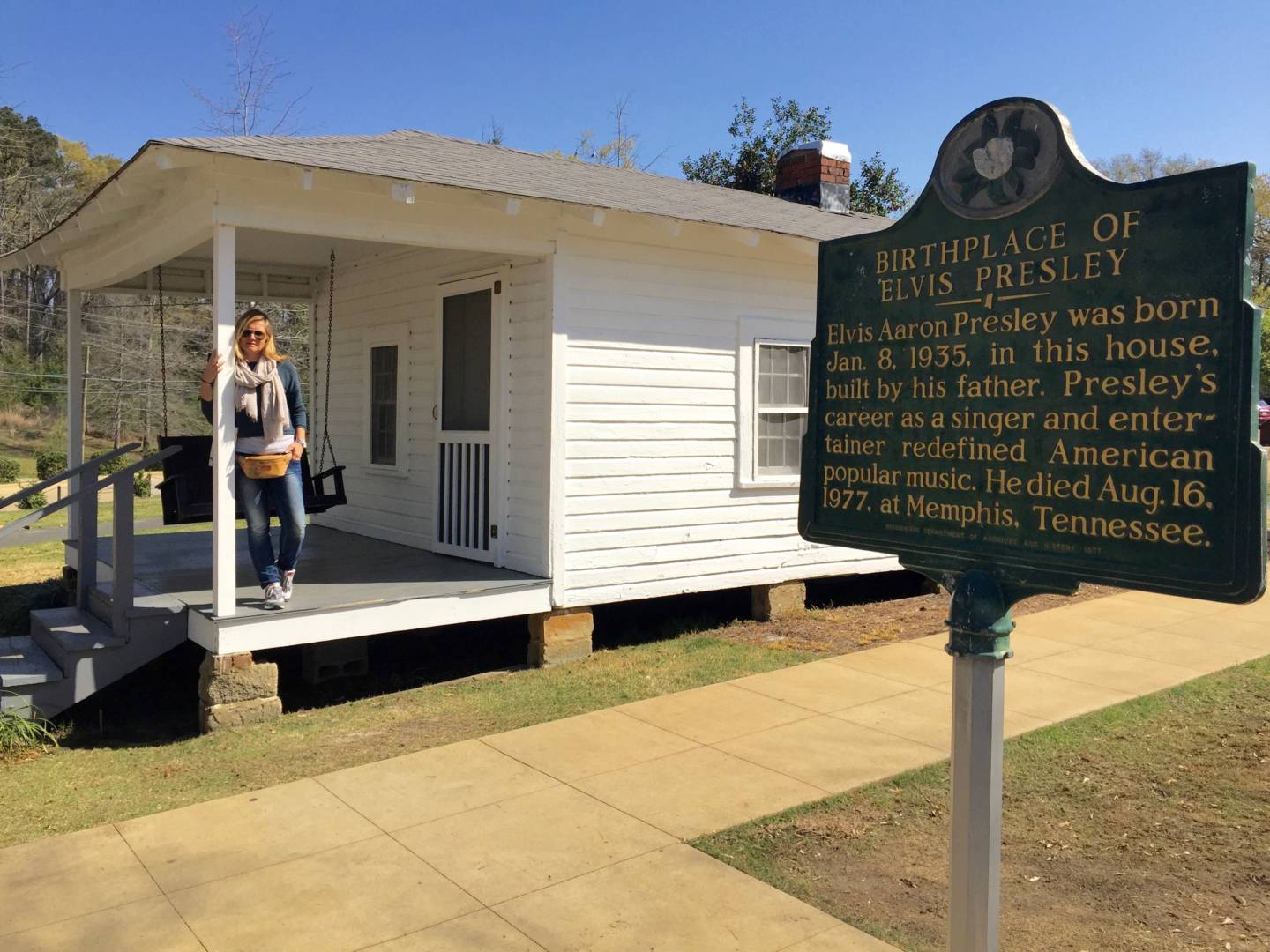
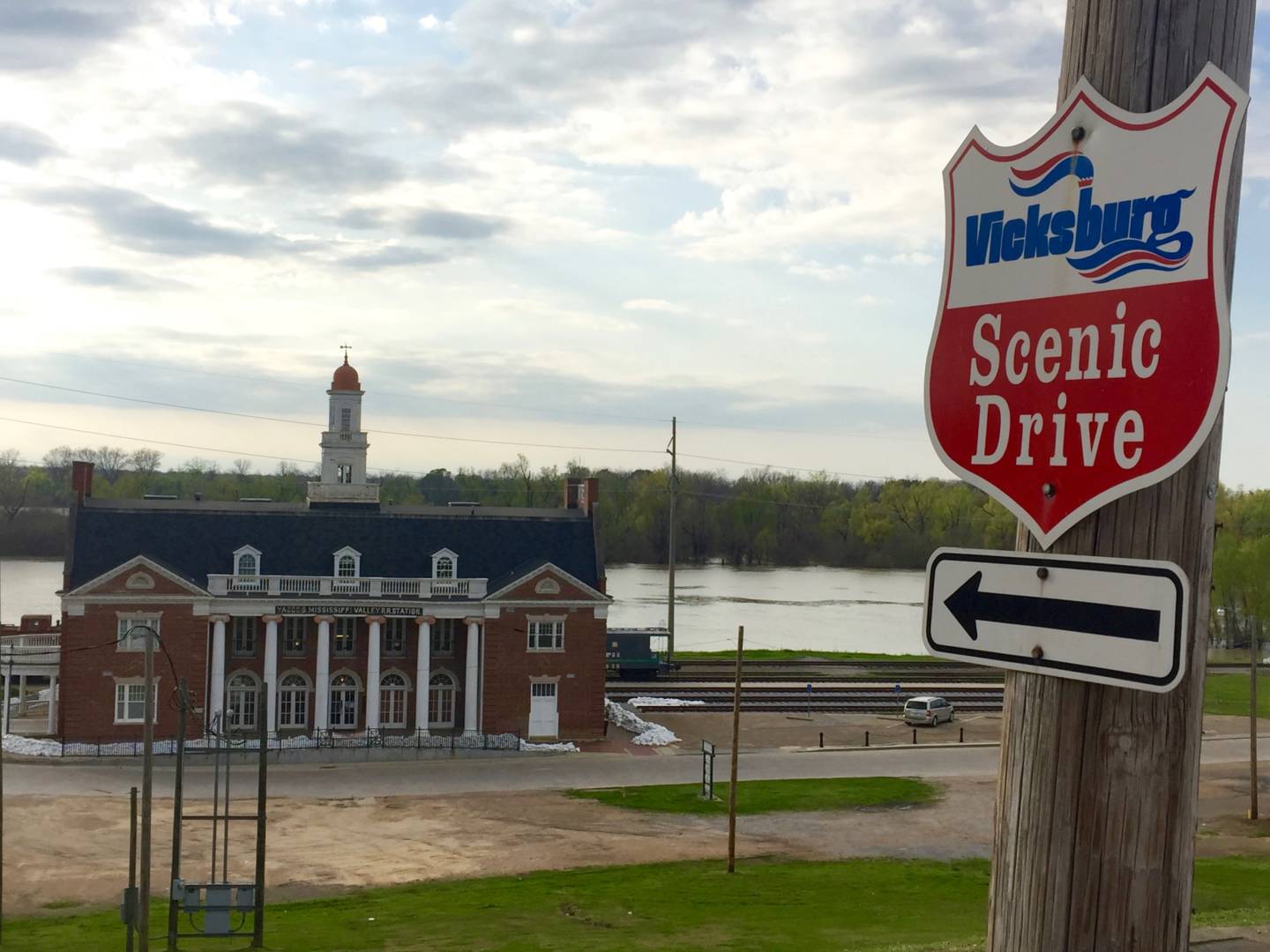
In Italian
Autumn, season of foliage in New England.
Season of colors and warm shades enveloping forests, paths and clearings.
Season of unforgettable road trip and roads redrawn by the vermillion red, by the light-brown and the yellow ochre of the leaves fallen along the route.
Season of lit fireplaces after whole and harsh days spent swallowed by the most surprising nature, by the furthest traditions, by the most thrilling history.

Foliage in New England
Season of villages with other times savor, of elderly and charming inns where to spend the night and of really delicious pumpkin muffins and maple syrup pancakes to have breakfast.
Season of Halloween, of wood porches and little emporiums decorated with themed decorations, fluorescent little ghosts, pointed hats, cotton candy cobwebs and chocolate spiders. Season of carved pumpkins and old creaking mansions where to listen to stories and tales of a remote past.
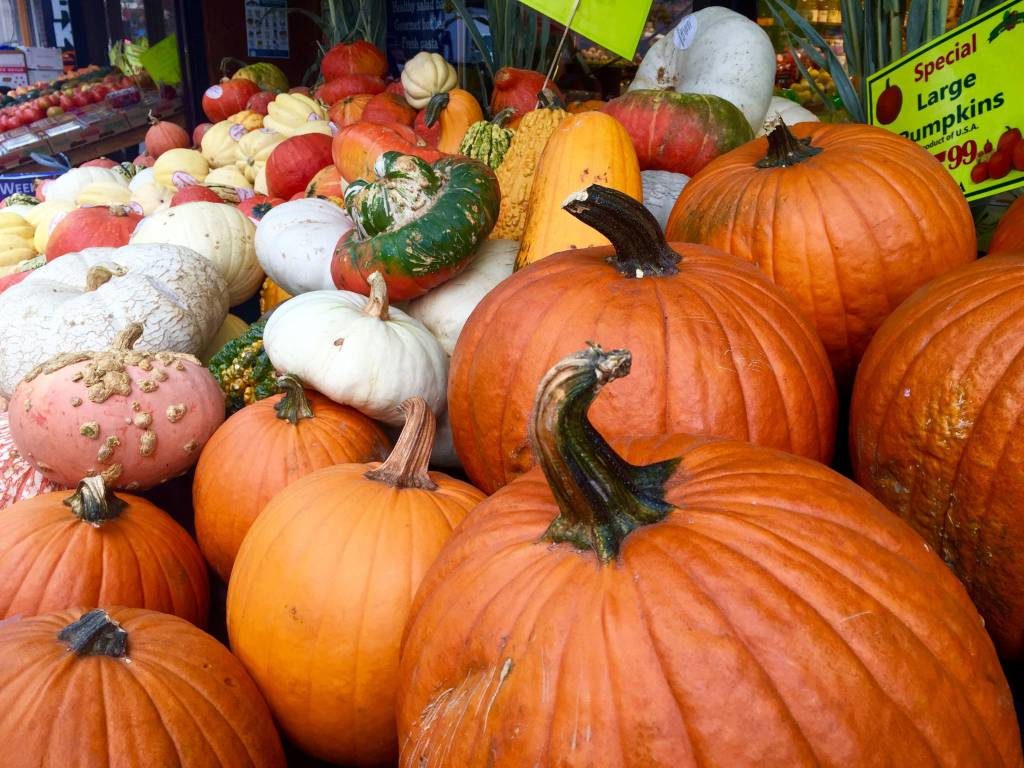
Almost Halloween
The foliage in New England is a magic moment, a short season – little over a month – that allows to live in an even more spectacular and unique way a land which is itself already rich in history, cities and very ancient sites, traditions, legends and breathtaking landscapes.
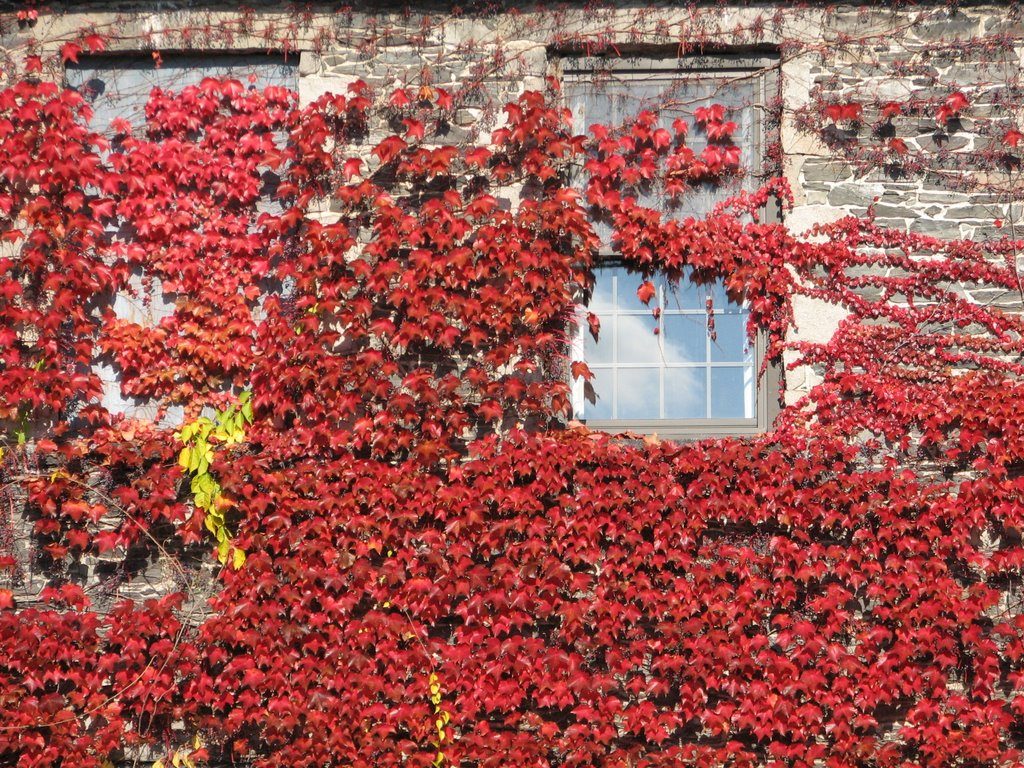
Foliage in New England: Autumn in Lowell, Merrimack Valley
One of the most suggestive places to live a such experience is the Merrimack Valley without any doubt. It’s an idyllic region to the north-west of Boston which allows at the same time both to observe a wonderful nature and to discover some of the most ancient and charming small towns – it would be better to call them villages – of the whole New England.
Like Concord – I already told about it in a post some time ago – its houses, those ones of the great authors of the American literature, the suggestive cemetery of Sleepy Hollow, the naturalistic oasis of Walden Pond, the old historic Inns and the precious dwellings where novels and then famous movies like “Little Women” and “The Scarlet Letter” were born.
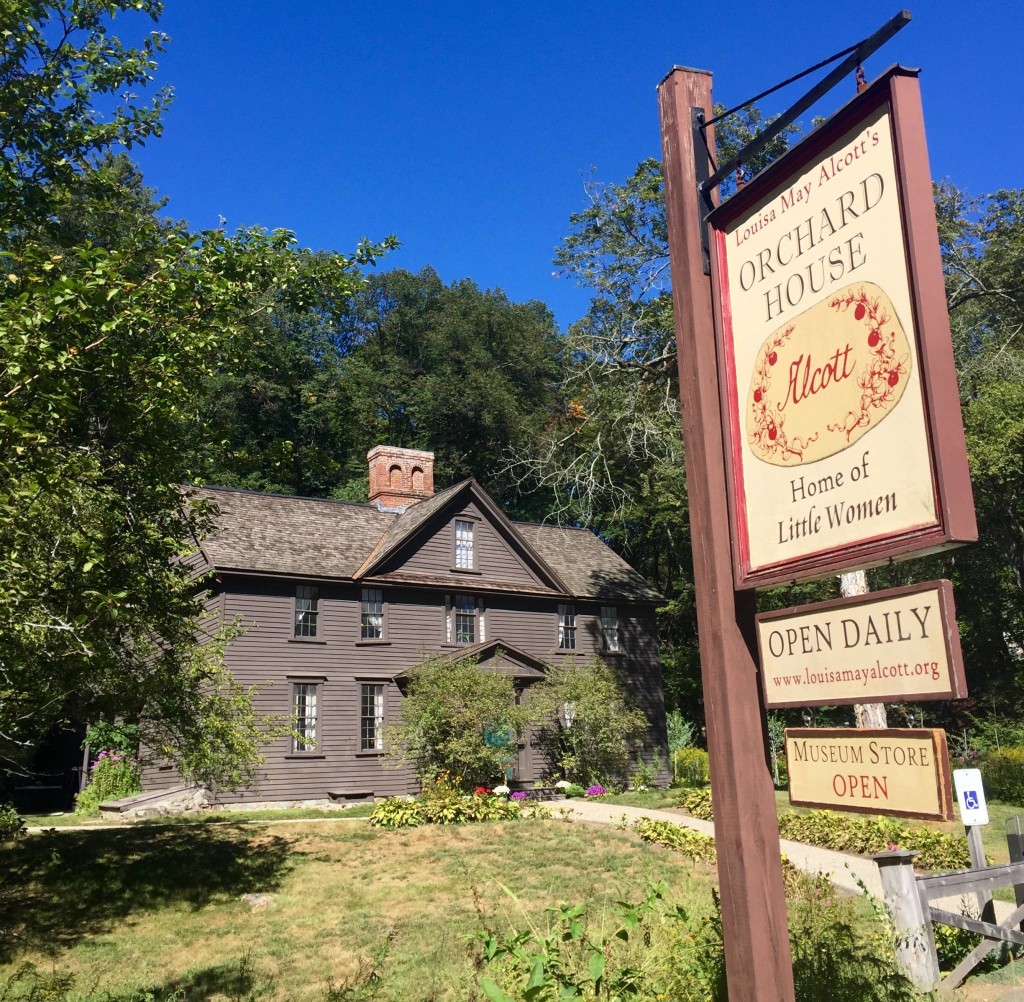
Little Women’s “house”
The Merrimack Valley – reclined between New Hampshire and Massachusetts, along the Merrimack River flow – offers the possibility to enjoy a long weekend swallowed by history, traditions and fairytale backgrounds of the most authentic foliage in New England.
A possibility for people who are staying in big cities like Boston or New York by few hours car (40 minutes about from the capital of Massachusetts and 3,5 hours from NYC).
The Merrimack River is one of the greatest rivers in the region, a precious resource that over time favored the sustenance and the development of the different cultures living along its levees since the Native Indians times.
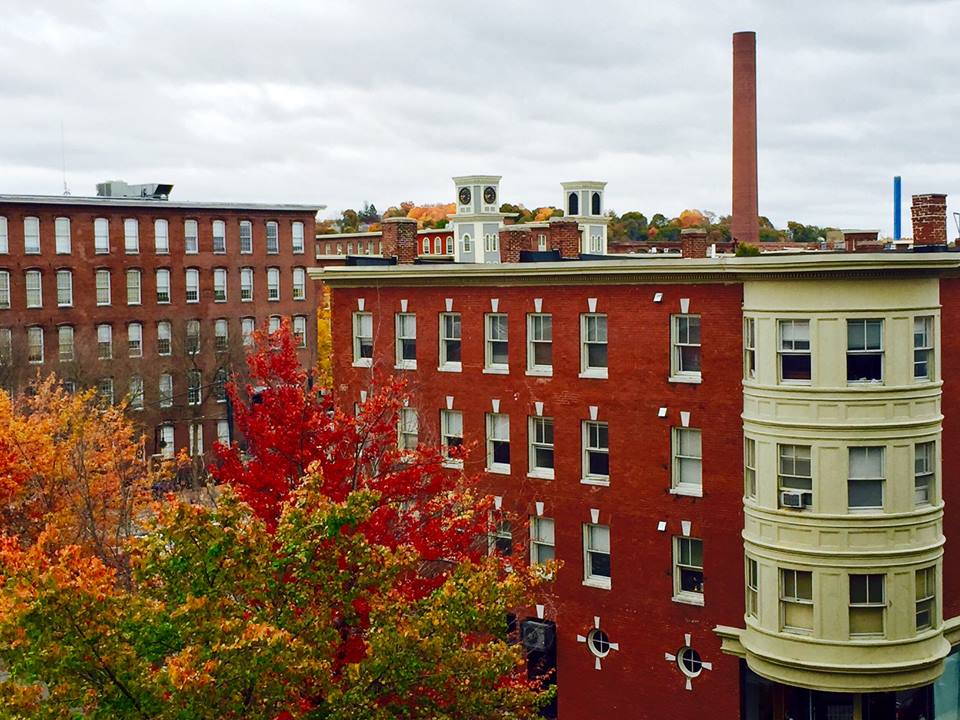
Foliage in New England: the Autumn colors in Lowell
An area relatively short, including forests, paths, valleys and even towns and villages – among which, in 80 km, about the ancient Concord and Lexington, the delicious Westford and Wilmington and the eclectic Lowell.
They were born following the arrival of colons, the Pilgrim Fathers, on the Plymouth coasts or to coincidence with the birth of one of the first and most important American textile industries of the XIX century, right in Lowell.
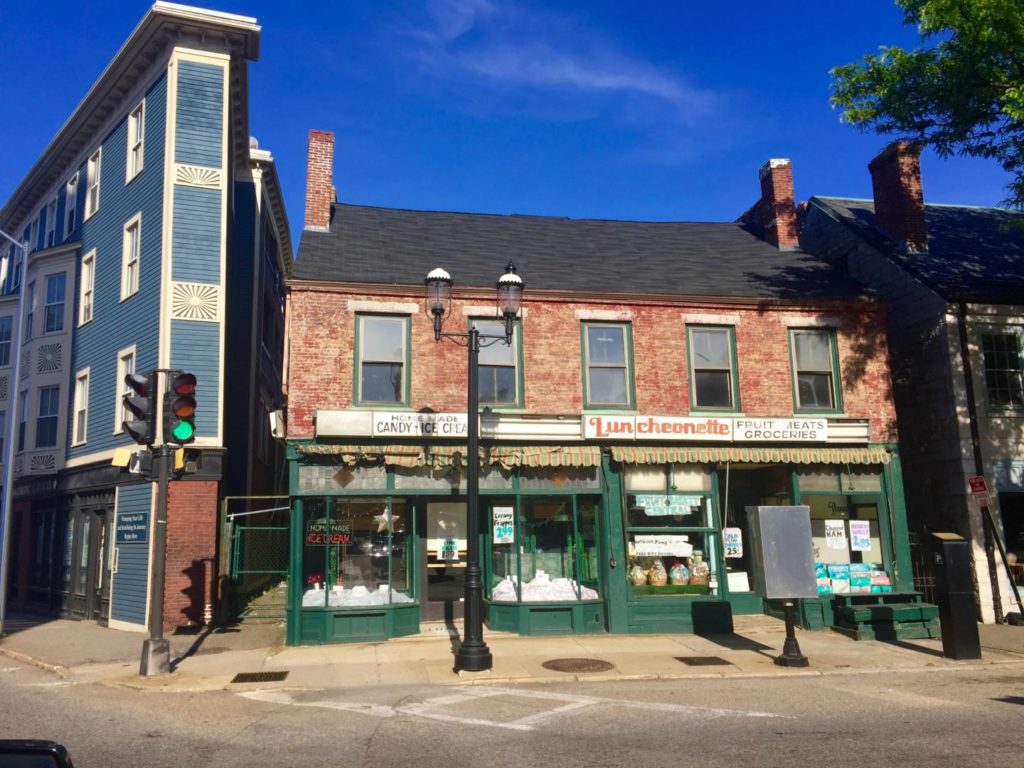
Lowell, details
Lowell is the downright heart of the Merrimack Valley and is in Massachusetts.
It’s just 50 km far from Boston and you reach easily it taking first the I 93 and successively the I 495 through the beautiful small town of Tewksbury.
It’s the most ancient manufacturing industrial center in the United states of America. It was born at the beginnings of the 1800s thanks to the idea of some American barons – among which Francis Cabot Lowell (the city was named after him) – to create the first industrialized pole of the new world exploiting the strategic inlets of the site and the power of the water jet produced by the so-called “leaps” of the Merrimack and Concord River.
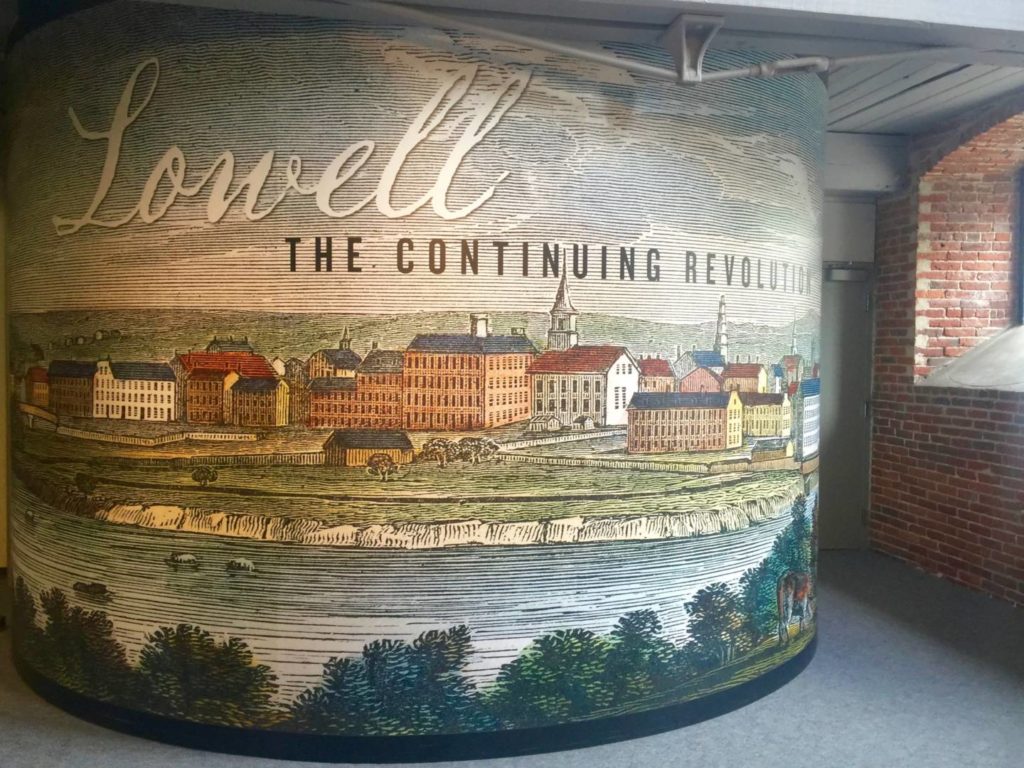
Welcome to Lowell, homeland of the American Industrial Revolution
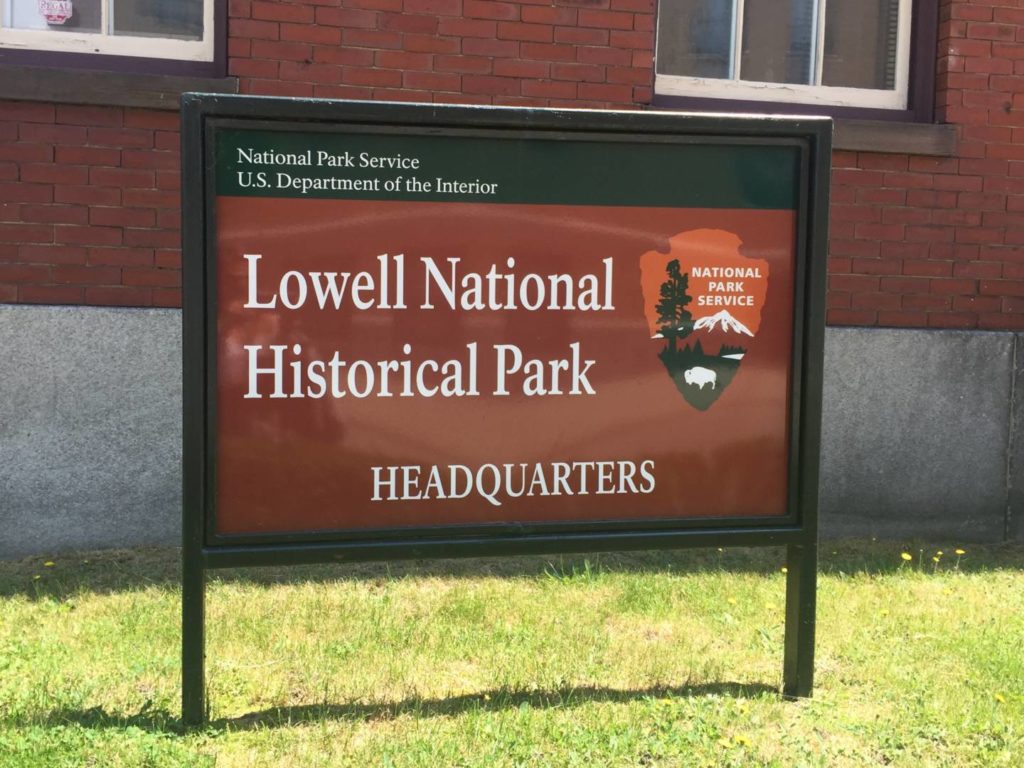
Lowell National Historical Park
Today, as evidence of that remote past, it’s possible to visit the Lowell National Historical Park.
It’s a complex of historic buildings exactly in the downtown linked by themed paths by boat in the canals and by a little train taking directly to the entrance of the Boott Cotton Mills Museum: it tells the big and complicated adventure of the Industrial Revolution in Lowell. Inside it keeps an authentic weaving room with almost 90 vintage looms working perfectly: looking at them working it’s a downright view.
Less far there’s the Mills Girls & Immigrants Museum: it tells the history of the complicated life of the textile female workers coming from the neighbored countryside and of the numerous immigrants’ families arrived as far as here from the old Europe searching for a better future. Among the last ones the French-Canadian family of one of the most beloved writers of the Beat Generation, Jack Kerouac.
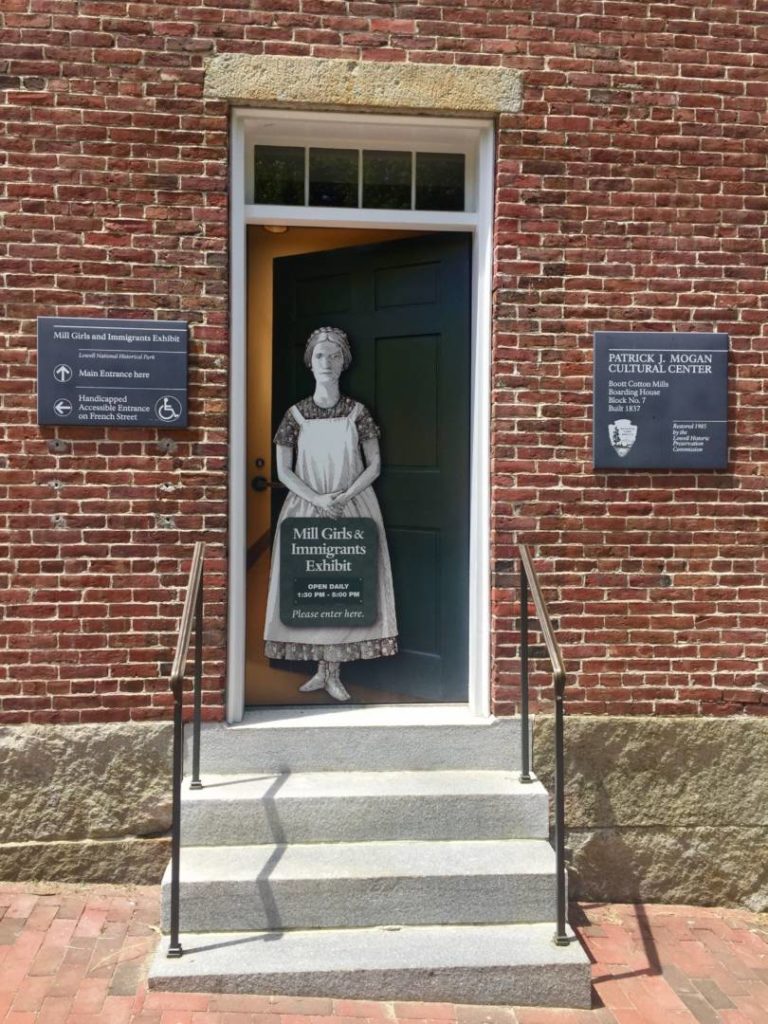
The Mills Girls & Immigrants Museum
Jack was born and lived in Lowell until the end of his teens and it was just among the factories, the roads and the buildings of the small town in the Merrimack Valley and among the wonderful views of the Pawtucket Falls that he set some of his most intense novels.
Click here to find a detailed itinerary to discover Kerouac’s Lowell.

Discover Lowell: Edson Cemetery, Kerouac’s grave and the new tombstone behind
It’s just in the Autumn that Lowell gives its best when the brick-rust brown color of the old factories joins the warm and intense one of the most authentic foliage shades in New England.
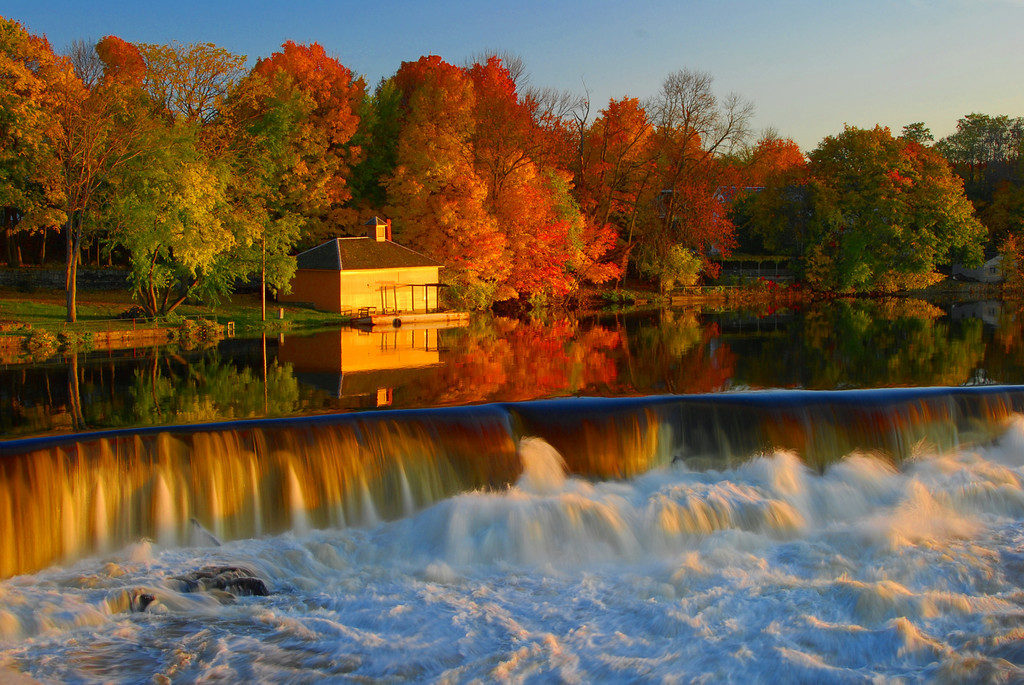
Foliage in New England, the “leaps” of the Pawtucket Falls, Lowell
Try to walk along the Merrimack Street, from the Western Canal as far as the Pawtucket falls, one of the most suggestive water leaps of the Merrimack River and enjoy the view and the warm colors of the Autumn reflecting into the canals.
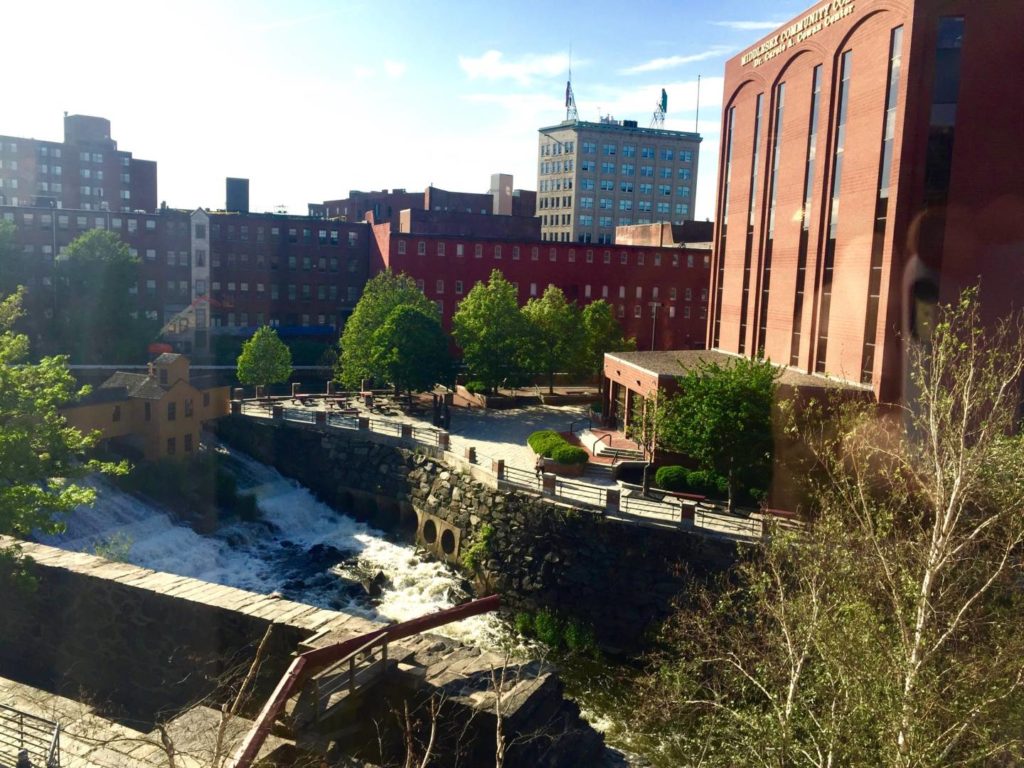
Foliage in New England: Lowell
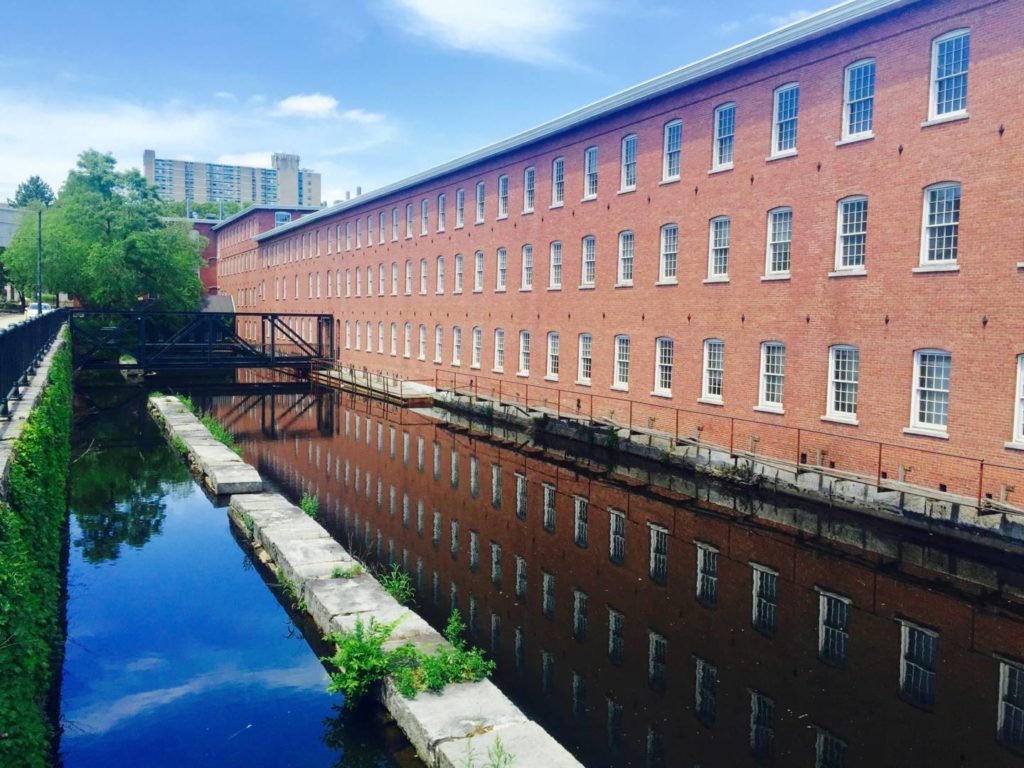
Foliage in New England: Lowell and its canals
You can stop to read a few pages of “Doctor Sax” on the benches of the near Jack Kerouac Commemorative Park or visit the New England Quilt Museum: it keeps one of the richest collections of pieced quilts in the region. Do you know those wonderful colored quilts created joining different cloth pieces?
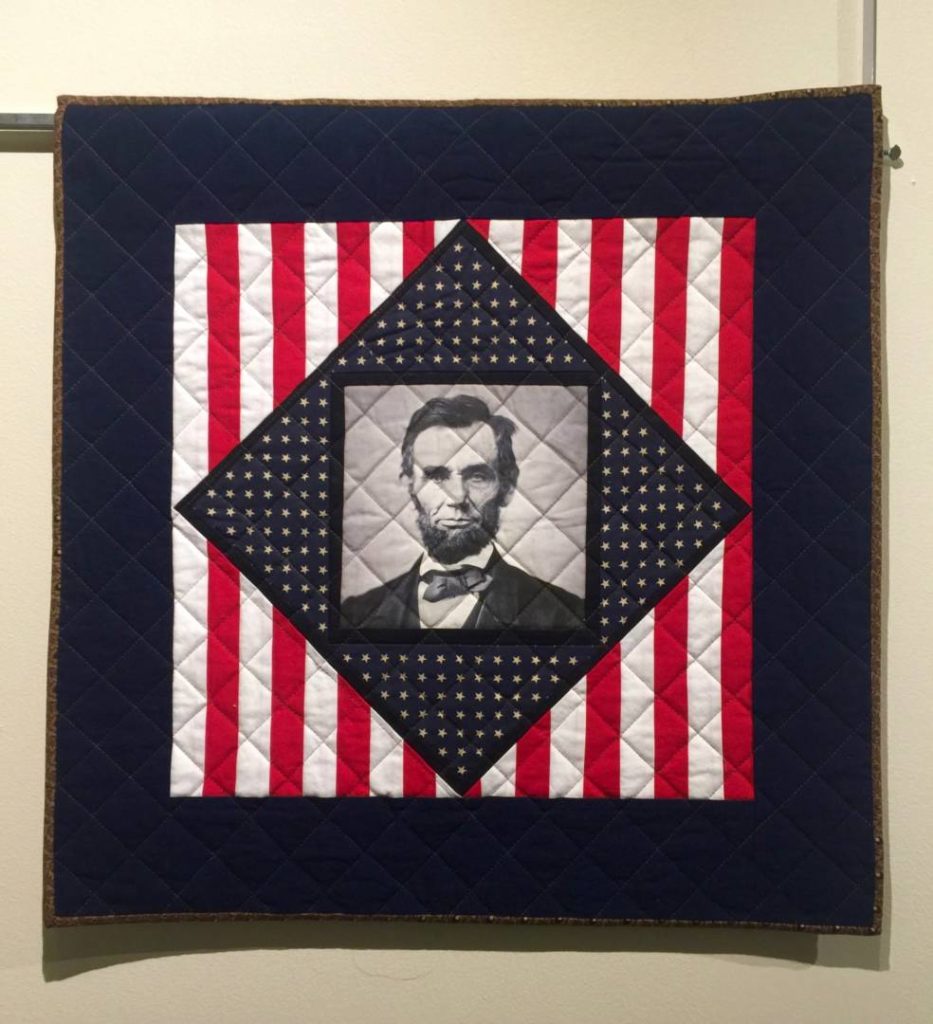
A Quist dedicated to President Abraham Lincoln, New England Quilt Museum
Or if you love art in every shape and display, you can go to the Western Avenue Studios.
It’s a complex – officially opened to public on the first Saturday of every month from Midday to 5pm – got by an old industrial building where over a hundreds of artists coming from the whole nation work and exhibit.
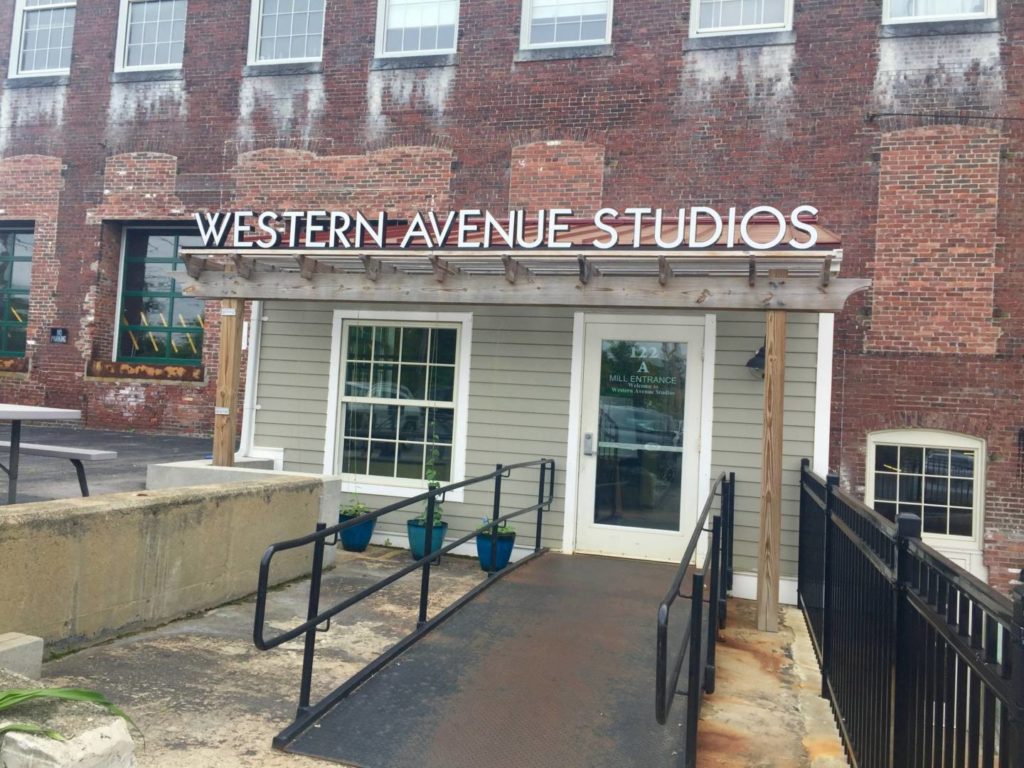
Foliage in New England: Western Avenue Studios
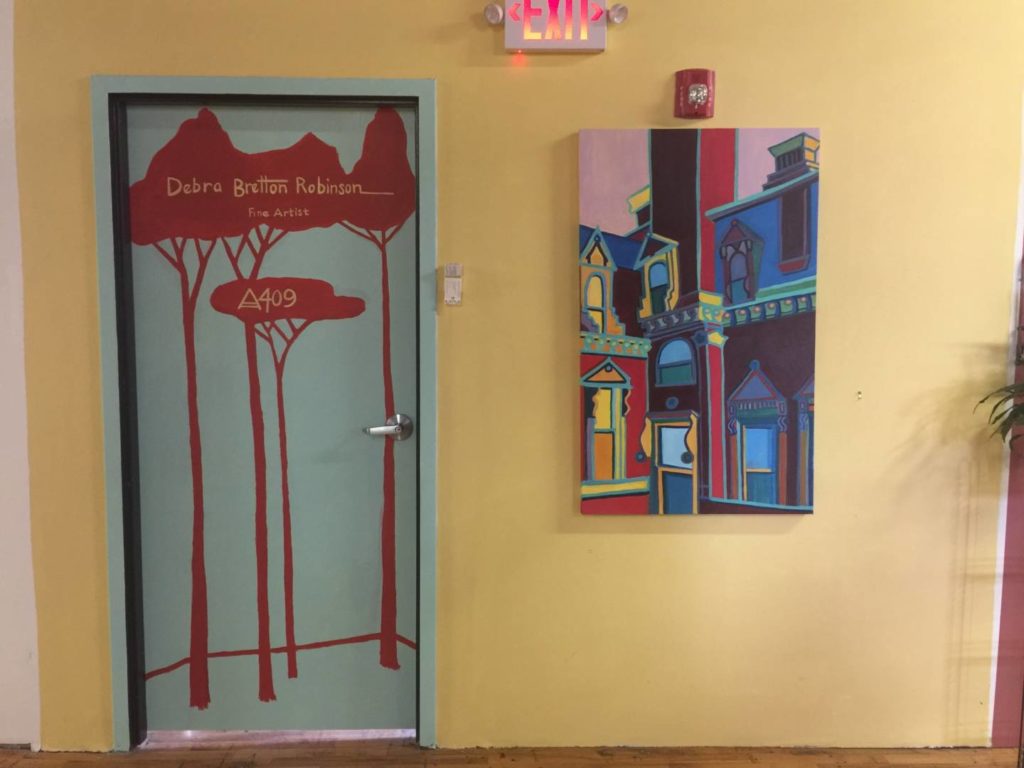
Foliage in New England: Western Avenue Studios, inside
And don’t forget to stop for breakfast or lunch at one of the most crowded and original diners of the area, the Four Sister’s Owl Dine.
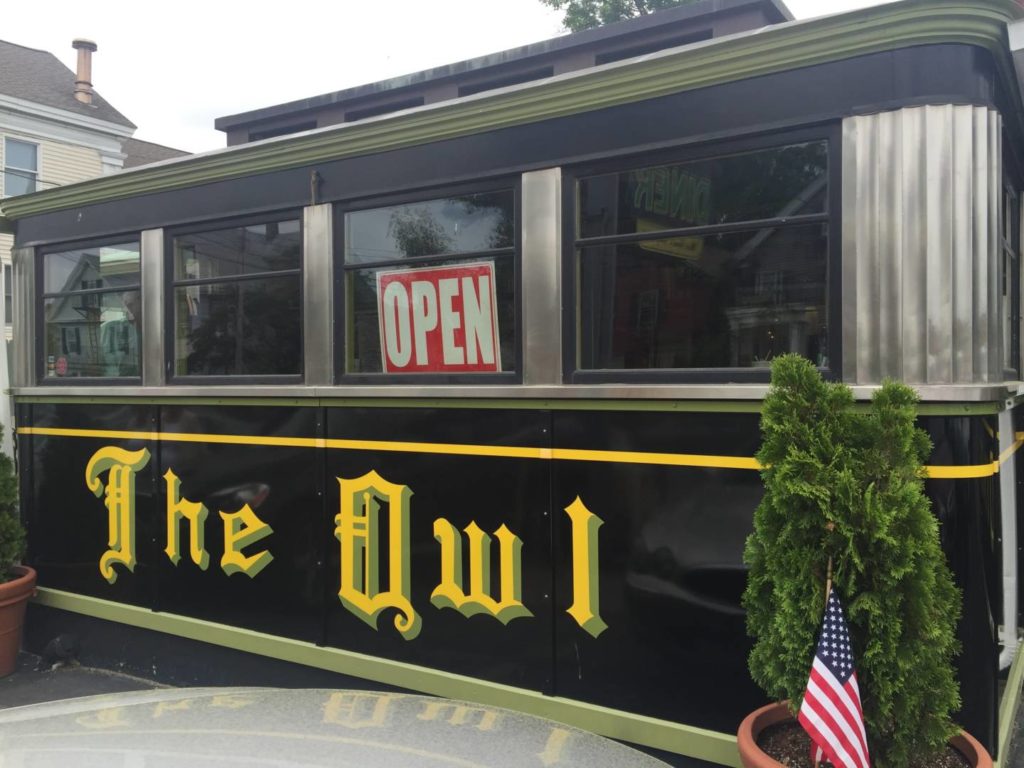
The Four Sister’s Owl Dine
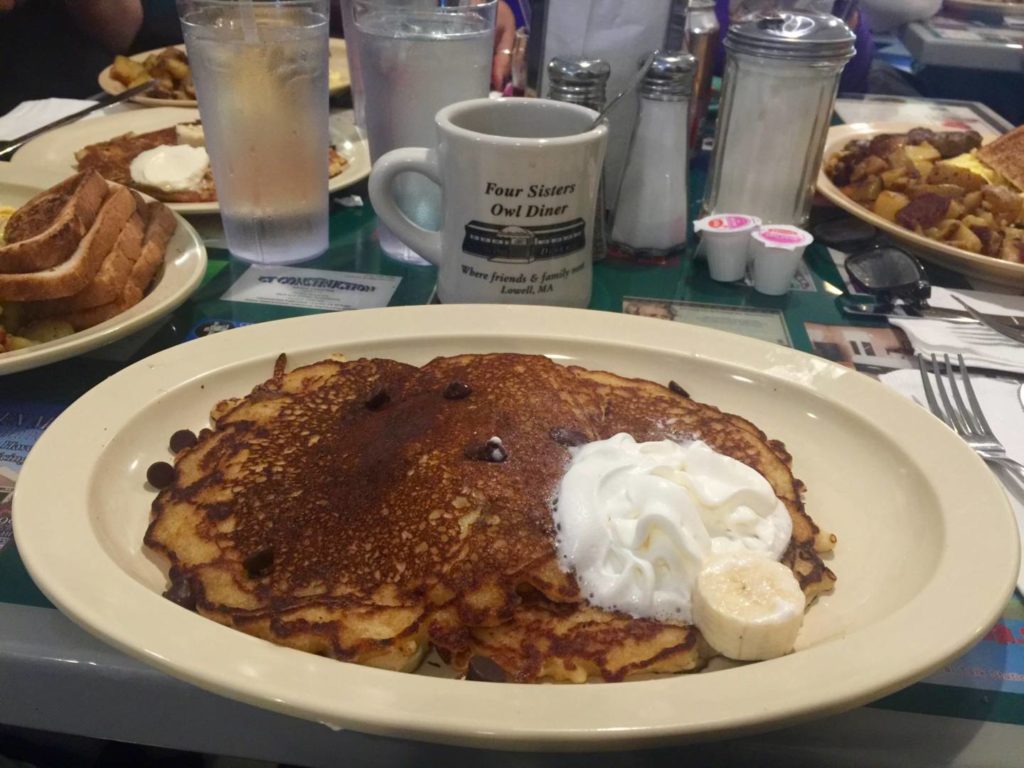
Breakfast at Four Sister’s Owl Dine
A typical American restaurant exactly in 1950s style got by the car of an old train.